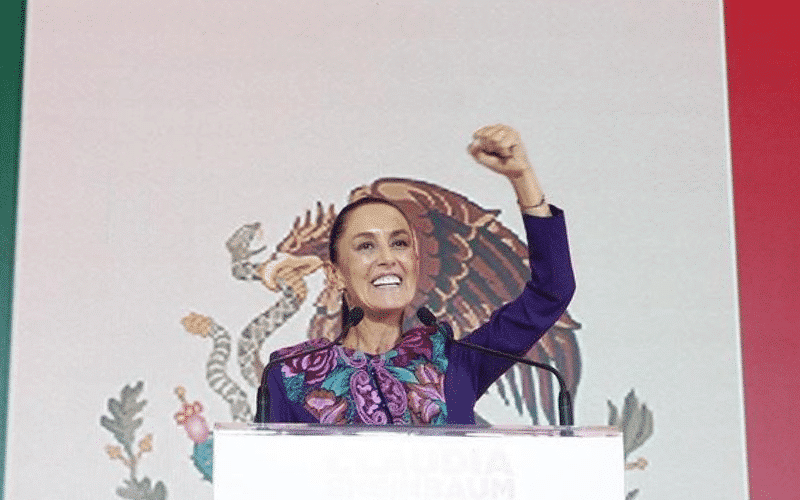Mexico Makes History: Claudia Sheinbaum Elected First Woman President
History was made as Claudia Sheinbaum became Mexico’s first woman president. Out of the three largest countries in North America, only the United States has yet to elect a woman President.

The people of Mexico made history today, ushering in a new era of leadership led by Claudia Sheinbaum, who just became the first woman president in the country’s 200-year history after a successful campaign.
Out of the three largest countries in North America, only the United States has never elected a woman to lead the country. Canada was the first to take that step by electing Kim Campbell as their Prime Minister in 1993.
“I will become the first woman president of Mexico,” Sheinbaum said at a press conference in a downtown Mexico City hotel shortly after electoral authorities announced that voting data showed she held an irreversible lead. “I do not arrive alone. We all arrived, with our heroines who gave us our homeland, with our mothers, our daughters, and our granddaughters.”
According to a statistical sample, the National Electoral Institute’s president said Sheinbaum had between 58.3% and 60.7% of the vote. They also reported that Opposition candidate Xóchitl Gálvez took 28.6% of the vote and Jorge Álvarez Máynez captured about 10.8% of the vote.
This election also included Mexico’s members of Congress, Governors, and other state leaders. Sheinbaum’s Morena party, which has been dominating Mexico’s political landscape in recent years, was projected to hold majorities in both chambers of Congress.
During her campaign, Sheinbaum was heavily backed by (now former) President Andrés Manuel López Obrador. The left-leaning López Obrador was enthusiastically elected in 2018 when voters who were largely unhappy with the governing Institutional Revolutionary Party’s status quo delivered a historic margin of victory for him and the Morena party.
Sheinbaum didn’t enjoy the same level of enthusiasm, as many Mexicans reported discontent caused by the array of issues López Obrador was unable to or chose not to solve. Fernando Fernández, a chef, 28, told the AP News, “You vote for Claudia out of conviction, for AMLO,” referring to López Obrador by his initials. But his highest hope is that Sheinbaum can “improve what AMLO couldn’t do, the price of gasoline, crime and drug trafficking, which he didn’t combat even though he had the power.”
Sheinbuam is making double history as the first Jewish person to ever be elected President in Mexico. Despite the historic firsts, Sheinbaum is facing mountains of serious problems to solve, one of which falls within her very own area of expertise.
As a climate scientist and former mayor of Mexico City, she’ll take office at a time when Mexico City is facing a water shortage crisis a decade in the making, with much of this occurring while she led the city as mayor. Experts say that without significant solutions, the city could be approaching “Day Zero”–which is when a city simply runs out of water–around June. Millions of people in the outskirts of the city have already been living with rationed water, but should the city actually reach “Day Zero,” up to 20 million people could face the summer without running water, according to a New Lines Magazine report.




